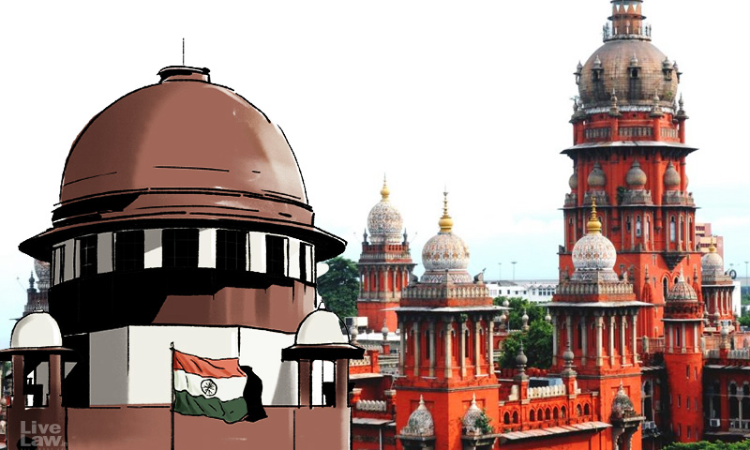Manas Dasgupta
NEW DELHI, July 4: The Supreme Court on Tuesday refused to entertain a plea by the Enforcement Directorate to take upon itself the responsibility to decide the question of custody of the arrested Tamil Nadu minister V Senthilbalaji in a money-laundering case linked to the cash-for-jobs scam.
The petition was filed by the ED within hours of the Madras High Court delivering a split verdict earlier in the day on a habeas corpus petition (HCP) filed by the wife of Senthilbalaji who was by the ED on June 14 and remains in a private hospital now under judicial custody.
One of the judges, Justice J. Nisha Banu, allowed the habeas corpus petition holding it to be maintainable despite a judicial remand order having been passed by a Sessions Judge on June 14 and ordered to set the Minister at liberty forthwith due to the ED’s failure to follow the legal procedures established by law before arresting him. Consequently, the judge also held that the ED would not be entitled to subject Senthilbalaji to custodial interrogation.
On the other hand, Justice D. Bharatha Chakravarthy, sharing the Division Bench along with her, disagreed and dismissed the HCP after holding it to be not maintainable. Justice Chakravarthy said, a HCP would not be maintainable except in cases of absolute illegality or total non-application of mind or lack of jurisdiction or wholesale disregard to fundamental rights. In the present issue, the petitioner had not made out any such case for the court to exercise its extraordinary powers, he added.
Rejecting the ED’s petition, the Supreme Court bench of Justices Surya Kant and Dipankar Datta, instead, requested the Madras High Court Chief Justice to expeditiously constitute a larger Bench to hear the case rejecting the plea by the Solicitor General Tushar Mehta, who represented the ED.
Mehta had urged the Bench to authoritatively decide the “neat questions of law” as to whether a habeas corpus petition would stand after a judicial order of remand and if the time spent by Senthilbalaji under medical treatment in a private hospital should be excluded from the period of custody allowed to the ED. “He is an influential person. Every day that passes increases the risk of tampering of evidence in the case. The damage would be irreversible,” Mehta stressed.
Appearing for Senthilbalaji, senior advocate Kapil Sibal and advocate Amit Anand Tiwari objected to Mehta’s suggestion to transfer the case to the Supreme Court. “How can you bypass the High Court? How can this request even be entertained? A three-judge Bench has to be constituted. They have to decide first,” he submitted.
Agreeing with Sibal, the Supreme Court asked the High Court Chief Justice “to place the matter before a larger Bench at the earliest and further to request the assigned Bench to decide the case as early as possible.” The Bench adjourned the case to July 24, noting that the “pendency of the special leave petition will have no bearing on the proceedings before the High Court.”
The Supreme Court on June 21 had left it entirely to the Madras High Court to decide whether the arrested minister’s move to a private hospital had thwarted the central agency’s “right to remand” and interrogate him on the money-laundering charges. The Enforcement Directorate (ED) had approached the Supreme Court against the Madras High Court’s decision to entertain the habeas corpus petition filed by Senthilbalaji’s wife the very next day after he was arrested and remanded to police custody on June 14.
The central agency had alleged that the High Court had allowed Senthilbalaji to be shifted to a private hospital, denying the ED its right to custodial interrogation. The Supreme Court had at the time explained that mere entertaining of the habeas corpus petition by the High Court did not mean that it had found the plea “maintainable.”
The Bench had noted in June that the High Court had already suggested that the ED could form its own specialist board of doctors to examine the minister at the private hospital and see if he is fit for interrogation. On May 16, the Supreme Court paved the way for the investigation to continue against Senthilbalaji who is accused of taking bribes in exchange for jobs in the Metro Transport Corporation (MTC).
The Supreme Court had set aside a Madras High Court order of October 31 last year, directing de novo or fresh investigation against the Minister. The apex court had directed the investigation to be wrapped up in two months.
The judgment, authored by Justice V. Ramasubramanian (since retired), had also given the green signal for initiation of proceedings by the Enforcement Directorate in related money laundering charges against the Minister. The judgment in May had eventually led to the arrest of the Minister.

